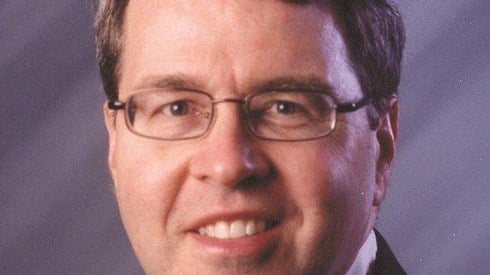Exclusive: Charles "Chaz" Lavelle, 2020 CICA Distinguished Service Award Honoree

December 02, 2020

Charles "Chaz" Lavelle believes one of the most remarkable things about the captive insurance industry is that supposed competitors can be so supportive of one another, citing help he's gotten from others in the industry.
Mr. Lavelle, though, has done plenty himself to help the captive insurance industry, with his contributions earning him the Captive Insurance Companies Association (CICA) 2020 Distinguished Service Award.
"Chaz Lavelle generously shares his immense body of knowledge for the betterment of the captive insurance industry," said CICA President Dan Towle. "His contributions have made the captive industry stronger."
CICA presents the Distinguished Service Award annually, when appropriate, to a single individual or entity that has made a significant contribution to the captive insurance industry. For Mr. Lavelle, a partner at the Dentons Bingham Greenebaum law firm, those contributions have involved playing a key role in addressing some of the most significant tax issues facing captive insurance companies.
"I'm a tax lawyer," Mr. Lavelle said. "I always say my elevator speech is, 'I fight the IRS every day.'"
Over his time counseling taxpayers on the formation, operation, and taxation of captive insurance companies, Mr. Lavelle has been involved in two of the five seminal cases concerning captive insurance taxation: Humana Inc. and Subsidiaries v. Commissioner and Ocean Drilling & Exploration Co. v. United States.
The cases addressed risk shifting and risk distribution for purposes of meeting Internal Revenue Service (IRS) definitions for insurance, the former by establishing the existence of a "brother-sister" relationship between subsidiary companies of the same parent such as a captive and an operating subsidiary, while the latter addressed substantial unrelated business.
Now, much of Mr. Lavelle's captive insurance tax work involves the IRS's increased scrutiny of so-called micro-captive small insurance companies.
"As a result of being involved in all these tax cases and all these different areas, issues, and industries, I've gotten to see how the captive industry works," Mr. Lavelle said. "It's unique because, among all these people that would seem to be competitors, there's a ton of cooperation. Everyone's goal is to make things better for everybody in the industry, create a better environment.
"Almost everyone in the industry compares notes," he said. "I'm just representative of those hundreds of people out there who are cooperating."
That cooperation can also be seen through captive industry organizations like CICA, domicile captive insurance associations, and the International Center for Captive Insurance Education (ICCIE), which help promote excellence and best practices in the industry, Mr. Lavelle said.
"There has to be a venue for that, a platform, and CICA is the leading platform for that cooperation," Mr. Lavelle said. "CICA does two things—sometimes it leads on an issue, but also if it knows that there's a local issue being handled by local people, it's smart enough to operate in a support position—help without taking over the issue."
Meanwhile, with an organization like ICCIE, "you have lots of people who are leaders in the industry who are instructors, and they try to make the industry better," he said.
Captive regulators, too, play a role in advancing the industry, Mr. Lavelle said. "I think the regulators as a whole try to understand what the business objective is of an arrangement," Mr. Lavelle said. "Then, they try to measure that business objective against what the regulatory requirements are. And, assuming there's a match, they'll do everything they can to try to help businesses achieve their goals.
"I think there's a healthy recognition by the service providers that they need to assure that the captives are operating in a way that they're supposed to, and there's an appropriate cooperation in coordinating with the regulators to make sure that occurs," he said.
Mr. Lavelle also noted the role of organizations like CICA in promoting captive insurance industry best practices.
"The best practices are to have all captives operating within the lines," he said. "CICA has developed standards and publications that talk about best practices. And I think the industry as a whole, and each of the service providers, tries to have people stay within the lines, and that is a consequence of best practices."
Thinking about the next generation of captive insurance industry professionals, Mr. Lavelle would advise them that passion is an essential element of success.
"I think about it in the terms of the way I talk to young associates about how to succeed or progress in the law," he said. "Find something you're passionate about. Because if you're passionate about it, you're going to enjoy it more, you're going to work harder at it, and you're going to be better at it.
"In the insurance industry, there's almost a limitless amount of opportunities to find something you're passionate about. Because in insurance, it's all about 'something might happen,' and that runs the gamut," Mr. Lavelle said. "There's almost an infinite number of opportunities to find something you're passionate about in the insurance industry."
He'd also advise young captive insurance professionals to become involved in industry groups. "If you want to excel in your job and what you've found passion in, one of the ways to do it is to get involved with the people who are also passionate about it," Mr. Lavelle said.
(Photo of Mr. Lavelle, above, is courtesy of Captive Insurance Companies Association.)
Copyright © 2020 International Risk Management Institute, Inc.
December 02, 2020
